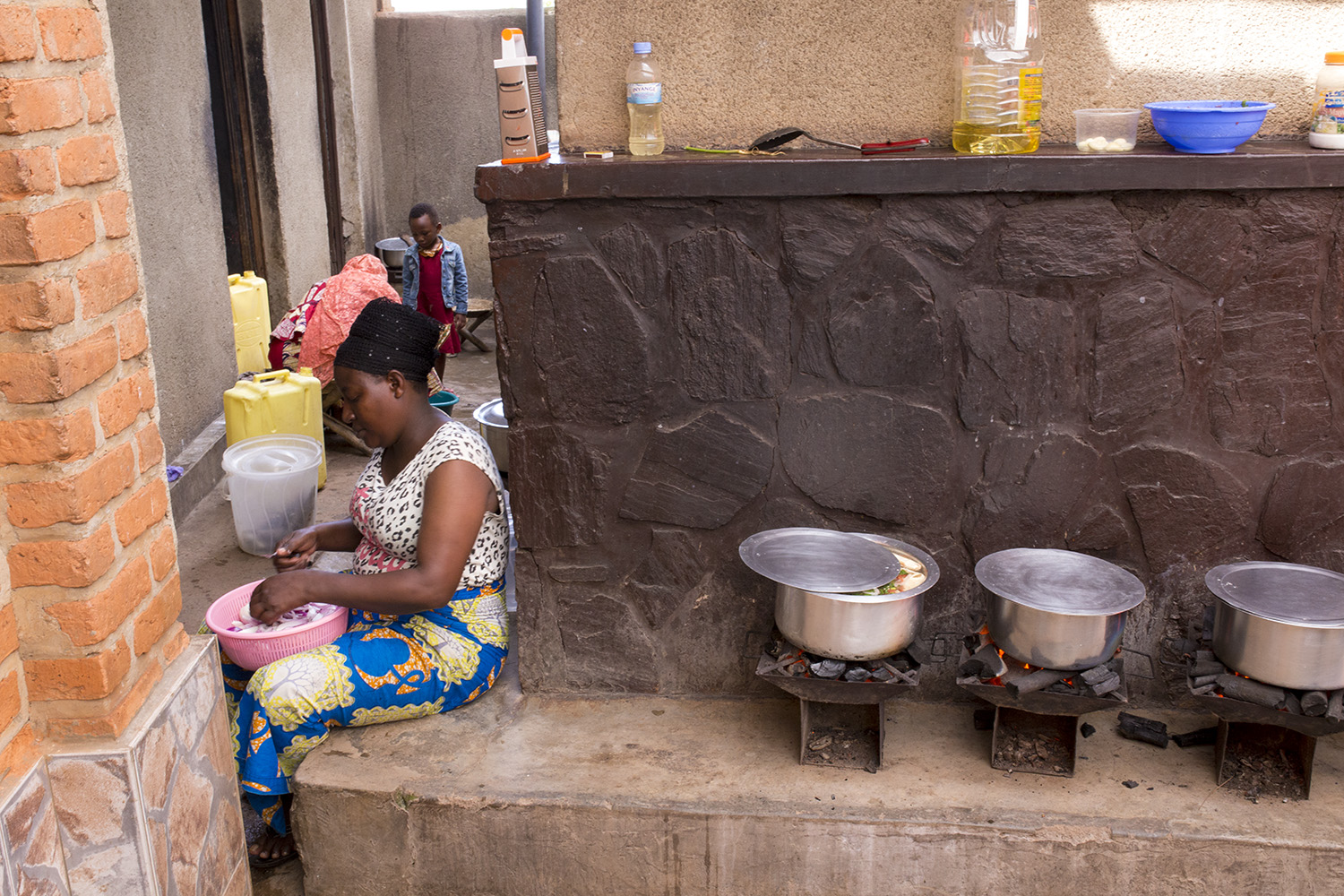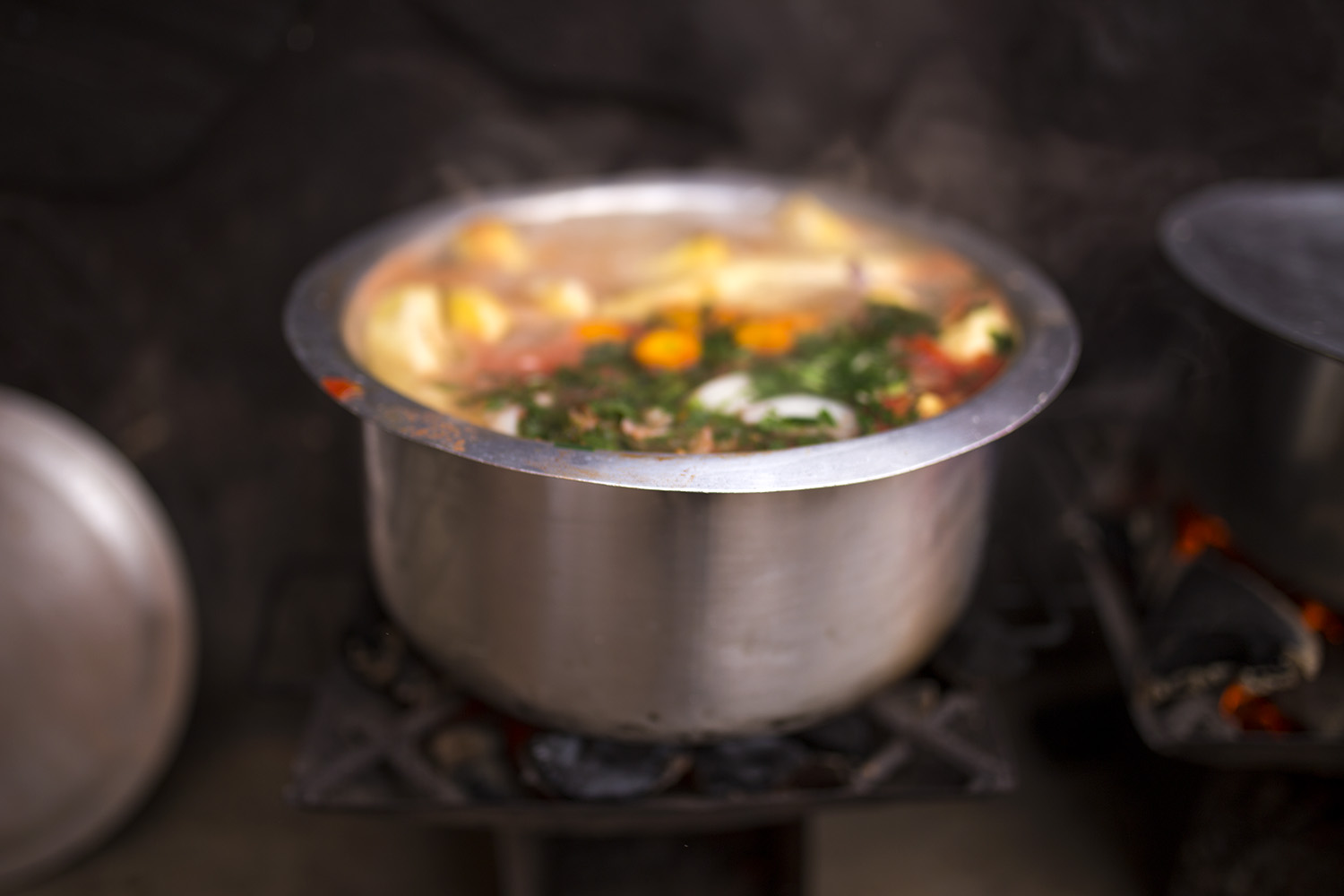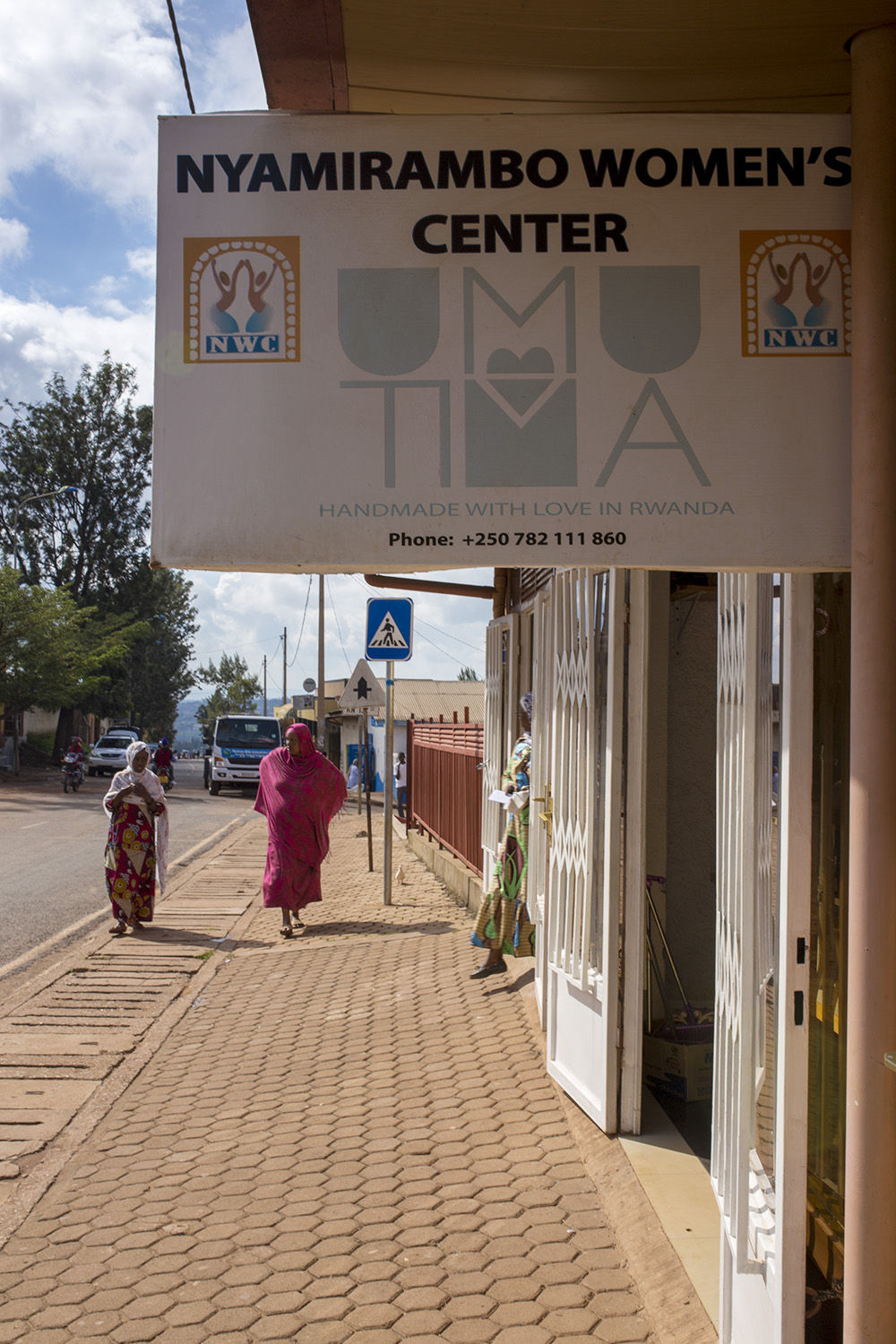Nyamirambo Women’s Centre teaches tourists food, crafts and history of Rwanda
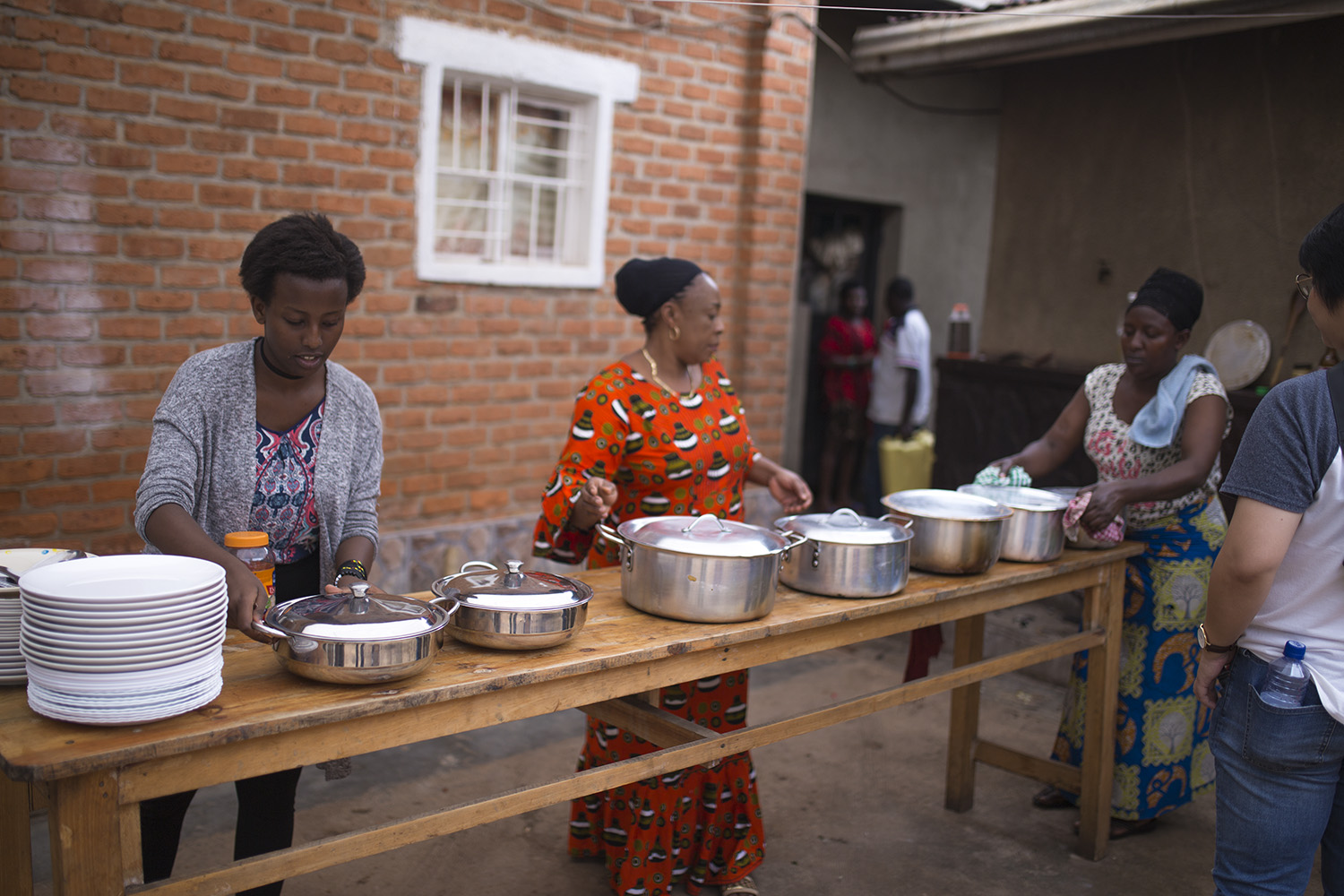
By Karen Kwok and Jack Lung
A group of tourists in bright aprons chop amaranth leaves, peel cassava and soak green bananas on a long wooden table while metal pots simmer on small charcoal burners in the outdoor courtyard of chef Aminatha’s home.
The Rwandan cooking class starts with the preparation and ends with a group feast. It’s one of three classes run for tourists by the Nyamirambo Women’s Centre, a non-governmental organization launched at 2017 by 18 Rwandese women. The centre educates and trains women in the hopes they can get better jobs. It also address gender-based violence, gender inequality and discrimination.
Most of dishes are vegetables. “In Rwanda , most of the people are vegetarian because vegetables are easy to get. Regular meat is not available. They love to mix thing together and most of dishes don’t have specific names and people just mention the main ingredient,” said Kevine, 22, who has worked at the centre for a year.
Just down the street, a group of women sit on the floor teaching more tourists how to weave. Most are making colourful earrings. In shop, brightly coloured children’s clothes and handicrafts are for sale.
“We teach women how to read and write that do help them to find job and teach the local people how to treat women right,” said Mary Nyangoma, vice president of the centre and one of the founding members.
The centre also gives walking tours, which start with a traditional snack, a Kinyarwanda language lesson and an introduction to the centre. The centre is in the Nyamirambo neighbourhood, a lively area where most of the city’s Muslims live. The old district is dotted with mosques and colourful houses.
“The salary of the centre is much better than outside,” said Kevine who started at the centre after finishing secondary school.
“Nyamirambo Women’s Centre do give a chance for women to learn and help them to find a better job,” said Ms. Nyangoma.

The Nyamirambo Women’s Center, in the oldest area in Kigali, has helped approximately 500 Rwandan women. The center practices community-based tourism with classes on traditional culture and customs and trains women in sustainable crafts.
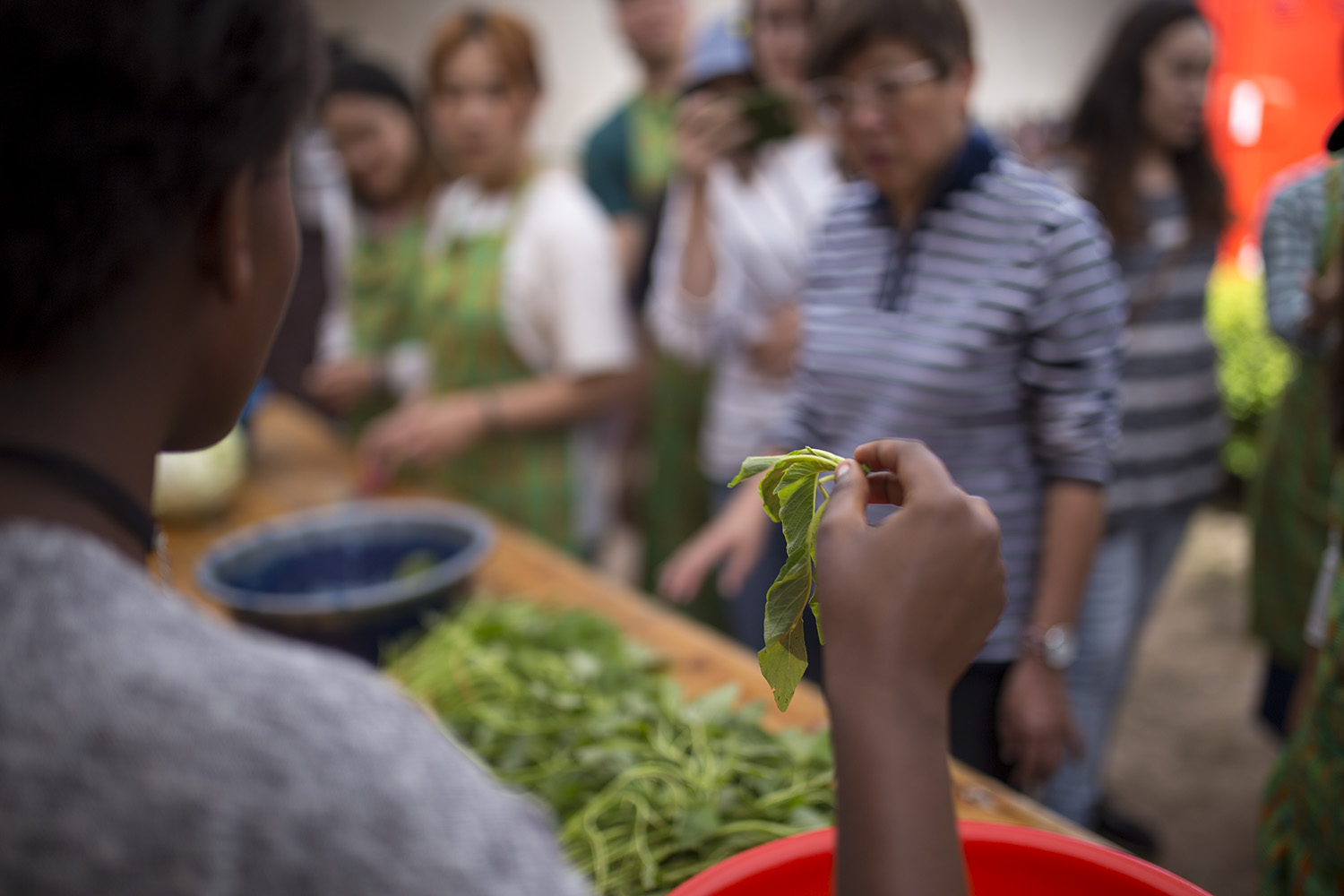
A woman from the centre holds up dodo, the word for amaranth leaves, for a cooking class held by the center. The dodo is cooked with onions and peanut flour.
